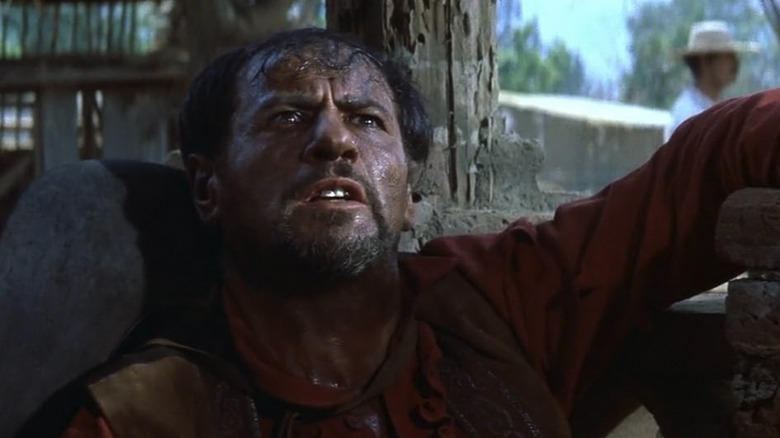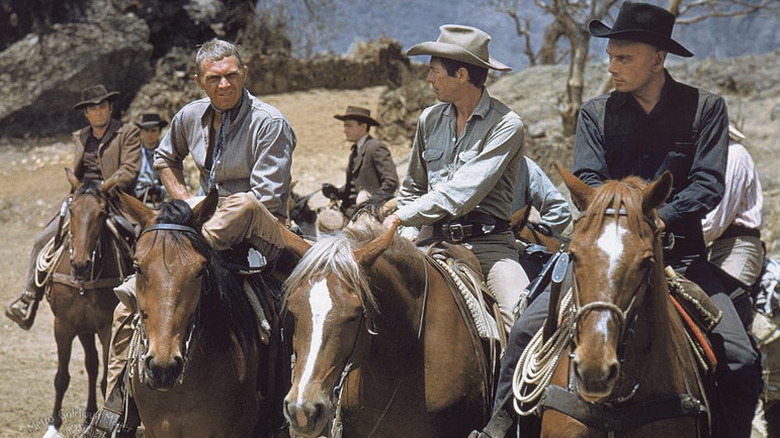Eli Wallach Died With One Regret Over 1960's The Magnificent Seven
John Sturges' "The Magnificent Seven" is one of the best Westerns of all time. We are bound by the Unspoken Rules of the Internet to acknowledge that the film is a loose remake of Akira Kurosawa's "Seven Samurai," and Kurosawa himself found it "disappointing, but entertaining." With all due respect to the Japanese master, though, "The Magnificent Seven" is a banger. Led by a stalwart cast that serves as a who's who of 1960s manly men, including Yul Brynner, Steve McQueen, James Coburn, Robert Vaughn, Horst Buchholz, Brad Dexter, and Charles Bronson, the plot follows a small Mexican village that's being terrorized by a gang of bandits led by a guy named Calvera, played Eli Wallach. With their backs against the wall, the villagers decide to hire a group of seven gunslingers to protect them, and the stage is set for an inevitable showdown.
Brynner and McQueen butted heads behind the scenes, but it seems as if most of the other cast members had a comparatively OK time making the picture. However, in his 2005 autobiography (quoted by a 2016 piece at CowboysIndians), Eli Wallach expressed one regret about his experience making "The Magnificent Seven," and it had to do with the film's music.
Wallach wished he could have heard Elmer Bernstein's Magnificent Seven score while filming
"If I had heard that score," Wallach wrote in his autobiography, "I think I would have ridden my horse differently. In the days of silent movies, mood music was played on the set to enrich the actors' feeling for a scene. That would have helped me."
You can see a version of what Wallach is referring to in the cacophonous filming scene that takes place early in Damien Chazelle's underrated 2022 opus "Babylon." And knowing Bernstein's score, it's easy to understand what he means when he says hearing it could have helped him. I mean, just listen to this sucker:
The upbeat theme somehow perfectly captures the ideal spirit of adventure that many of the best Westerns aim for — so much so that I'd argue the tune not only represents this movie but could even serve as the unofficial theme song for all of Hollywood's Golden Age Westerns should such a thing ever need to come to a vote. Bernstein's combination of chirping brass and soaring strings conjures such a specific vibe that you have to imagine anyone hearing it on horseback would perk up and hold their chin a little higher as soon as it hits their ears. To the characters in "The Magnificent Seven," the act of riding a horse was commonplace, but with that score playing underneath, there's a majesty and an importance to every step that simply isn't there in real life.
Still, despite his qualms about his horse riding, Wallach must have done something right, because he was cast in five more Westerns throughout the 1960s alone, including Sergio Leone's classic "The Good, The Bad and The Ugly." Then again, that experience nearly killed him multiple times, so ... mixed blessing?

